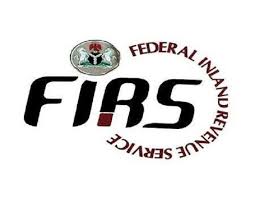The Federal Inland Revenue Service (FIRS) has warned taxpayers against the temptation of concealing business transactions under the new National E-Invoicing Solution, also known as the Merchant-Buyer Model. The agency said transaction monitoring has now become easier and more transparent with the digital system.
The warning was issued in Lagos during a two-day post-launch workshop attended by large taxpayers. The event was part of FIRS’ efforts to educate businesses on compliance with the new invoicing solution.
The National E-Invoicing Solution replaces traditional paper or electronic invoices, credit notes, and debit notes with a standardised digital format. The e-invoice contains all the critical details of a transaction, including supplier and buyer information, item descriptions, quantities, prices, taxes, and total amounts. It is designed to ensure real-time or near-real-time validation and storage of transactions across the country.
Speaking at the workshop, the Acting Director of Tax Automation at FIRS, Mr Mike Adoga, explained that the service had put in place a robust monitoring framework. He said every invoice issued through the platform would be assigned a reference number, making it easier for the service to track compliance.
“FIRS is in the middle of providing governance and ensuring that every invoice gets a reference number, which is also part of this initiative,” Adoga said. “What we do at the Tax Automation Department of FIRS is to provide all the digital tools that make tax administration seamless. One of the initiatives we have is transaction monitoring. If you are tempted not to declare all your invoices on the platform, that will not be a good idea, because we have also given all payment gateways the responsibility of reporting every payment that passes through them to us.”
He noted that this dual monitoring system would discourage tax evasion and encourage full use of the invoicing platform.
Representing the Chief of Staff to the FIRS Executive Chairman, Mr Tayo Koleosho, the Director of Change Management at FIRS, Mr Emmanuel Eze, said the workshop was aimed at providing practical guidance for taxpayers. He explained that the session covered taxpayer enablement, integration processes, and return invoice transmission.
Eze also announced that the deadline for onboarding taxpayers onto the platform had been extended to November 1, 2025. He said the decision was made to give businesses more time to test integration and resolve technical issues.
“We recognise the onboarding journey is still ongoing,” Eze said. “That is why the FIRS, in the spirit of encouraging voluntary compliance, has approved a three-month extension. This is not an opportunity to delay but a chance for all stakeholders to complete integration and be ready for enforcement. The service is committed to supporting you through technical services, sector-specific engagement sessions, and collaboration with designated service providers.”
Also speaking at the workshop, the Project Manager of the e-invoicing platform, Mr Mohammed Bawa, disclosed that FIRS was decentralising its customer support system. He said the move was aimed at improving taxpayer experience and ensuring that support was available at all FIRS offices nationwide.
“Internally, we are working to decentralise our support channels. We don’t want a situation where you always have to call me. We are expanding the team and ensuring every tax office is equipped with the relevant knowledge,” Bawa explained.
FIRS had earlier licensed 16 technology firms as service providers to assist businesses in onboarding the new invoicing system. The firms include Pasca Technology Limited, Hoptool Technology Limited, Etranzact International Plc, Telepac Africa Nigeria Limited, Cryptware System Limited, Namiri Technology Nigeria Limited, Ace of Spades Consult Nigeria Limited, Jureb Business Solutions Limited, Qucoon Limited, Courteville Business Solutions, and Softrust Technologies Limited.
Others are Westmetro Limited, Arca Payments Company Limited, Elara Technical Services Limited, Interswitch Limited, and Remita Payment Limited.
The National E-Invoicing Solution is part of the government’s broader tax reform programme aimed at improving compliance, curbing tax evasion, and boosting revenue generation. With transaction monitoring now more transparent, businesses are expected to maintain full compliance to avoid penalties.
